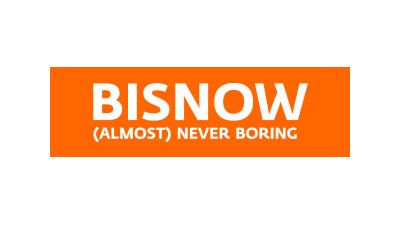Pebblebrook CEO Jon Bortz Keynotes Bisnow's Hotel Summit
It has been almost a year since Pebblebrook Hotel Trust merged with LaSalle Hotel Properties in a $5.2B deal, but the story continues to fascinate the hospitality community. After several rejected bids, Pebblebrook finally made LaSalle shareholders an offer they couldn’t refuse, beating out a $4.8B all-cash deal from Blackstone.
At the center of the deal was Jon Bortz, chairman and CEO of Pebblebrook, who led LaSalle for over a decade before leaving in 2009 to found Pebblebrook.

After selling $800M in assets as part of the merger with LaSalle, Pebblebrook has continued to sell off many of its hotels over the course of 2019, accumulating $449M in sales. Most recently, it sold the Hotel Madera in Washington, D.C., bringing it closer to its stated sales goal of $600M for 2019.
Bortz sat down with Bisnow to discuss the takeaways from the LaSalle merger, his West Coast ambitions and when the next downturn could rear its head. He will deliver the opening keynote at Bisnow’s Hotel Summit Oct. 30 at the JW Marriott Washington, D.C.
Bisnow: What have you learned since the merger with LaSalle?
Bortz: We confirmed that the opportunities that we believed existed do exist.
There are economies of scale and geographic synergies, what we call “potting,” which is jointly managing some properties. We’ve had about nine or 10 manager changes since we did the acquisition. Those allow us not only to improve the management but also take advantage of significant savings from marketing and running the properties with a combined team.
Bisnow: What is it like to take the reins back on the LaSalle portfolio?
Bortz: It’s been almost 10 years from when I was at LaSalle. I certainly have familiarity with many of the hotels, but the team itself is different. The only people left from my time there are two accountants. It was almost no different than buying a portfolio from a stranger.
Bisnow: You just sold two properties in D.C. this month, and you plan to sell more. What’s coming off the bottom and why?
Bortz: The main factor is geography. There are markets perhaps that we have a more negative view of, or we’re looking to build a concentration elsewhere. Our interest overall is to have a larger percentage of assets on the West Coast. Long term, we like the demand and supply characteristics over there. It’s a better risk-return scenario than what we typically find on the East Coast.
Bisnow: What would you say is your favorite part of your job?
Bortz: I love just about everything that I do. I love the creation of the business. I love developing the talent and the team, watching them grow and blossom and be successful.
I love dealing with our shareholders, telling them what we are going to do, what we did, even telling them when we screwed up. The thing I find most personally rewarding is the creative aspect of the redevelopments.
Bisnow: Do you have a favorite project that you’ve worked on?
Bortz: I’ve been fortunate to have been involved with some really special projects. I led the redevelopment of Union Station in D.C. and the redevelopment of Grand Central Terminal in the '90s.
On the hotel side, I’ve done so many projects that it’s hard to focus. But our first Z Hotel, Hotel Zetta San Francisco, was pretty special.
Bisnow: What keeps you up at night?
Bortz: It’s not what keeps me up at night, it’s what I wake up to in the morning: the latest tweet, seeing what damage is being done to the economy by our government. Whatever we do with our properties, and our portfolio, that’s on us. If we don’t perform, we can’t lose sleep over it. But what we can’t do anything about is this economy.
I’m usually a good sleeper, I don’t worry too much about my business, but the economy seems to be weakening for no good reason, or at least for reasons that could be reversed. There’s going to be a recession at some point, there’s nothing we can do about that, but there’s no reason it has to happen right now.
Bisnow: What are you looking forward to at Bisnow’s Hotel Summit?
Bortz: I like to tell the story about our company, the acquisition that we did last year, and everything that went into it. It was such a public pursuit, I’m always interested to talk about that.

